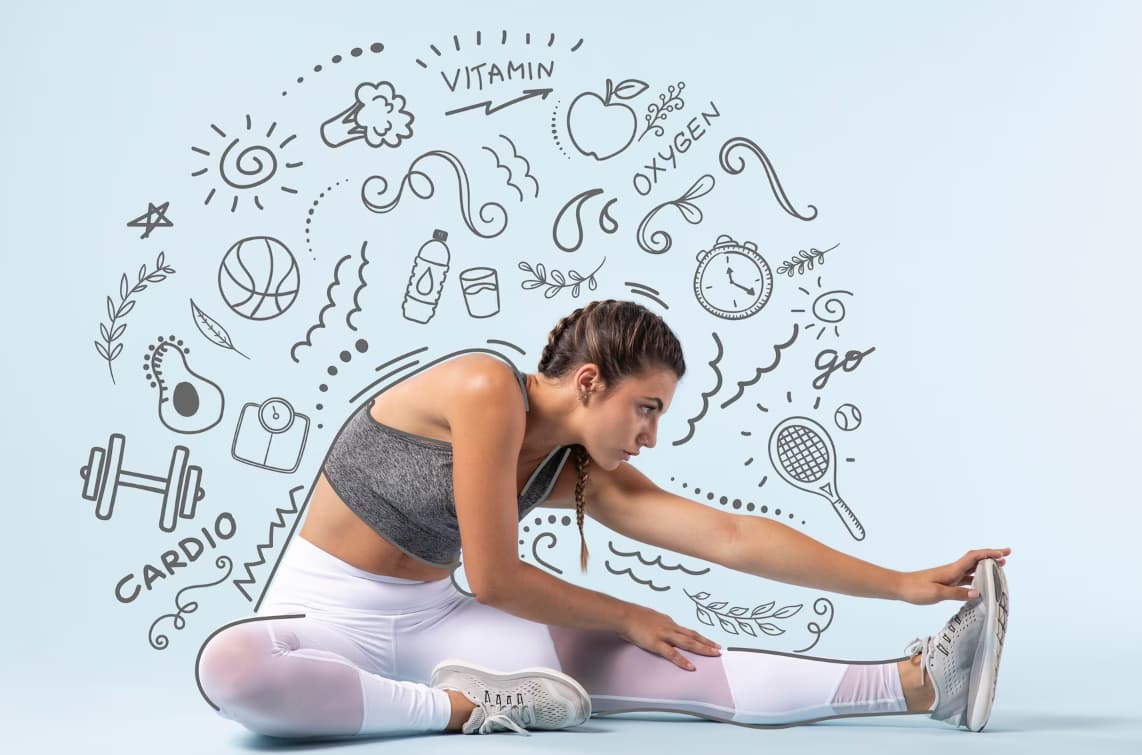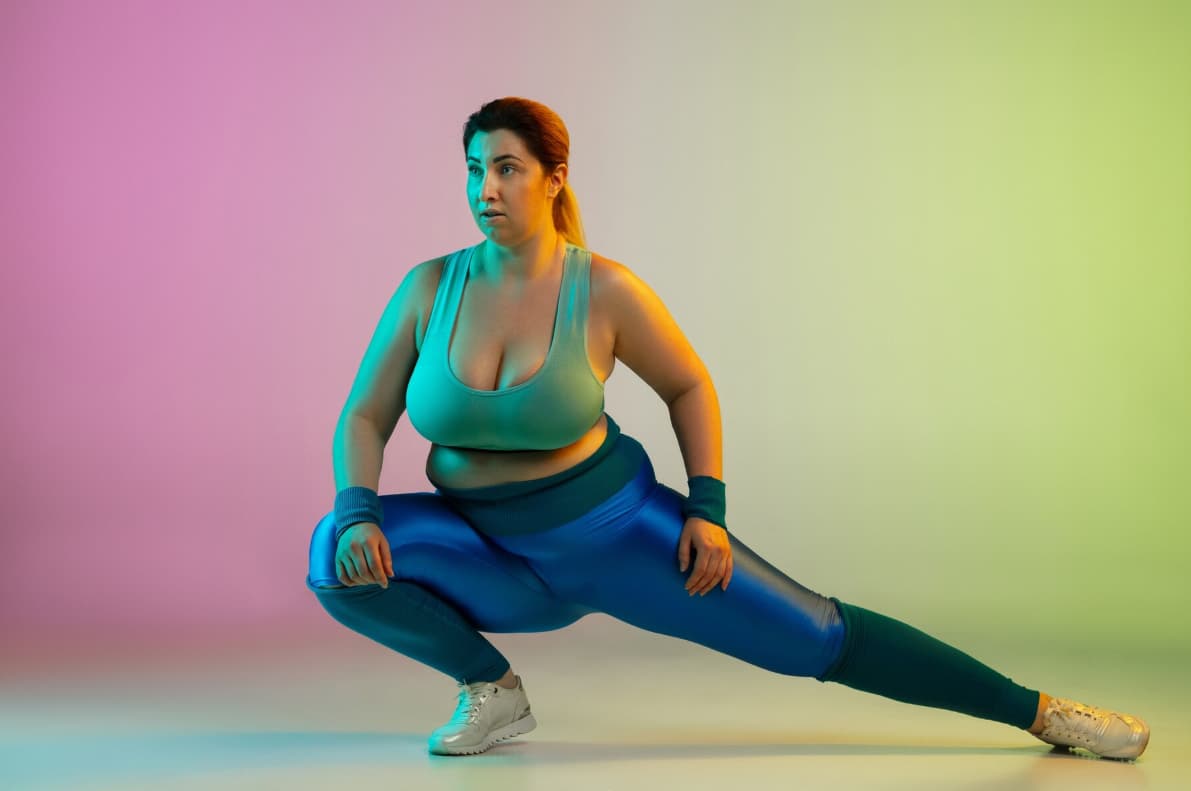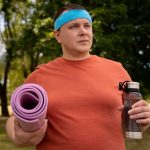Welcome to The ://vital-mag.net Blog! We’re here to help you learn about holistic health. This blog is all about taking care of your whole self – your body, mind, and spirit. We want to show you how holistic health can make your life better in many ways.
Holistic health is more than just working out or eating well. It’s about looking at your whole life and finding ways to be healthier and happier.
We’ll talk about how your mind affects your body, and how your body affects your mind. We’ll also share tips on eating right, exercising, sleeping well, and dealing with stress.
The ://vital-mag.net Blog

In this blog, we’ll explore different ways to heal that you might not know about. Things like acupuncture, yoga, and meditation can be great for your health. We’ll also talk about why it’s so important to take care of yourself.
We know it can be hard to make big changes in your life. That’s why we’ll give you easy tips to add holistic health practices to your daily routine. You don’t need to change everything at once. Small steps can make a big difference over time.
Our goal is to help you feel better, have more energy, and enjoy life more. We’ll use simple words and explain things clearly. We want everyone to understand and use this information, even if you’re new to holistic health.
So, let’s start this journey together! Read on to learn how you can live a healthier, more balanced life with holistic health.
The Mind-Body Connection: How Holistic Health Addresses Both Physical and Mental Wellbeing?
In holistic health, we talk a lot about the mind-body connection. This means that your mind and body are linked. What happens in your mind can affect your body, and what happens in your body can affect your mind.
How Your Mind Affects Your Body:
- When you’re stressed, your body might feel tense
- If you’re worried, you might get a stomachache
- Happy thoughts can make you feel more energetic
How Your Body Affects Your Mind:
- Exercise can make you feel happier
- Eating healthy foods can help you think more clearly
- Not getting enough sleep can make you feel grumpy
Holistic health looks at both your mind and body together. It doesn’t just try to fix one problem. Instead, it tries to make your whole self healthier.
Benefits of Addressing Mind and Body Together:
- Better overall health: When you take care of your mind and body, you feel better all around.
- Less stress: Holistic practices can help you relax and cope with stress.
- More energy: When your mind and body are in balance, you often have more energy.
- Improved mood: Taking care of your whole self can help you feel happier.
- Faster healing: Some people find they recover from illness quicker when they use holistic methods.
Holistic Practices That Help Mind and Body:
- Mindfulness: This means paying attention to the present moment. It can help you feel calmer and less stressed.
- Yoga: Yoga combines movement, breathing, and meditation. It’s good for your body and mind.
- Regular exercise: Moving your body can boost your mood and keep you physically healthy.
- Healthy eating: Good food fuels both your body and brain.
- Adequate sleep: Getting enough rest helps your body heal and your mind stays sharp.
Remember, your mind and body are always talking to each other. By using holistic health practices, you can help them work better together. This can lead to feeling healthier and happier overall.
The Four Pillars of Holistic Health: Nutrition, Exercise, Sleep, and Stress Management
Holistic health is built on four main areas. We call these the four pillars of holistic health. They are nutrition, exercise, sleep, and stress management. Let’s look at each one:
1. Nutrition
What you eat matters a lot for your health. Good nutrition gives your body what it needs to work well.
Tips for Better Nutrition:
- Eat lots of fruits and vegetables
- Choose whole grains over processed ones
- Drink plenty of water
- Limit sugary and fatty foods
- Try to eat a variety of foods
Benefits of Good Nutrition:
- More energy
- Stronger immune system
- Better mood
- Healthier weight
2. Exercise
Moving your body regularly is key to good health. Exercise isn’t just about looking fit. It helps your whole body, including your brain.
Types of Exercise:
- Cardio (like running or swimming)
- Strength training (like lifting weights)
- Flexibility exercises (like stretching or yoga)
- Balance exercises (like standing on one foot)
Different types of exercise work on different areas of your overall well-being. Cardio workouts work on your heart, strength, and lungs.
Strength training works on improving muscle growth and bone density. Flexibility exercises help joint mobility reduce muscle stiffness, and promote good posture. Balance activities improve stability and coordination.
Besides the basic categories, there are special exercises that use specific equipment, like punching bags for boxing or kickboxing.
These exercises help relax your body and keep your body energetic and your intellect sharp.
Benefits of Regular Exercise:
- Stronger heart and lungs
- Better balance and flexibility
- Reduced risk of many diseases
- Improved mood and mental health
3. Sleep
Getting enough good sleep is crucial for your health. Your body does a lot of important work while you’re sleeping.
Tips for Better Sleep:
- Go to bed and wake up at the same time each day
- Make your bedroom dark, quiet, and cool
- Avoid screens before bedtime
- Don’t eat big meals close to bedtime
- Try relaxation techniques before sleep
Benefits of Good Sleep:
- Better memory and focus
- Stronger immune system
- Easier to maintain a healthy weight
- Improved mood
4. Stress Management
Too much stress can harm your health. Learning to manage stress is an important part of holistic health.
Stress Management Techniques:
- Deep breathing exercises
- Meditation
- Regular exercise
- Talking with friends or a therapist
- Engaging in hobbies you enjoy
Benefits of Good Stress Management:
- Lower blood pressure
- Better sleep
- Improved relationships
- Less risk of depression and anxiety
Here’s a simple table to summarize the four pillars:
| Pillar | Main Goal | Key Benefits |
|---|---|---|
| Nutrition | Fuel your body right | Energy, immunity, mood |
| Exercise | Move regularly | Strength, heart health, mental clarity |
| Sleep | Rest and recover | Healing, memory, mood balance |
| Stress Management | Stay calm and balanced | Relaxation, better coping skills |
By focusing on these four pillars, you can build a strong foundation for your health. Remember, small changes in each area can add up to big improvements in how you feel overall.
Alternative Healing Practices: Acupuncture, Yoga, and Meditation
Holistic health often includes practices that might be new to you. These are called alternative healing practices.
They can work alongside regular medical care to help you feel better.
Let’s look at three popular ones: acupuncture, yoga, and meditation.
-
Acupuncture
Acupuncture is an old Chinese healing practice. It uses thin needles placed at specific points on your body.
How Acupuncture Works:
- Tiny needles are put into certain spots on your skin
- These spots are thought to connect to different parts of your body
- The needles may help balance your body’s energy
Potential Benefits of Acupuncture:
- May help with pain
- Could reduce stress
- Might improve sleep
- May boost overall wellbeing
Things to Know About Acupuncture:
- It’s usually not painful
- Always go to a trained acupuncturist
- Tell your doctor if you’re trying acupuncture
-
Yoga
Yoga is a practice that combines body poses, breathing, and meditation. It started in India thousands of years ago.
Types of Yoga:
- Hatha: Gentle, basic yoga
- Vinyasa: Flowing movements
- Bikram: Done in a hot room
- Restorative: Very relaxing, uses props
Benefits of Yoga:
- Improves flexibility
- Builds strength
- Can reduce stress
- May help with balance and posture
Tips for Starting Yoga:
- Start with a beginner class
- Don’t push too hard at first
- Focus on your breathing
- Use props if you need them
-
Meditation
Meditation is a practice of focusing your mind. There are many ways to meditate.
Types of Meditation:
- Mindfulness: Focusing on the present moment
- Guided: Following someone’s voice instructions
- Transcendental: Using a mantra (a word or phrase)
- Movement: Like walking meditation
Benefits of Meditation:
- Can reduce stress
- May improve focus
- Might help with anxiety and depression
- Can promote emotional health
Tips for Starting Meditation:
- Start with just a few minutes a day
- Find a quiet place
- Get comfortable
- Don’t worry if your mind wanders, just gently bring it back
Here’s a simple comparison of these practices:
| Practice | Main Focus | Physical Component | Mental Component |
|---|---|---|---|
| Acupuncture | Energy balance | Needle placement | Relaxation |
| Yoga | Mind-body connection | Poses and breathing | Mindfulness |
| Meditation | Mental clarity | Sitting or gentle movement | Focused attention |
These alternative practices can be great additions to your health routine. They focus on healing your whole self, not just treating symptoms. Always check with your doctor before starting new health practices, especially if you have any medical conditions.
The Importance of Self-Care in Achieving Holistic Health
Self-care is a big part of holistic health. It means doing things to take care of yourself. This isn’t selfish. It’s necessary for good health.
What is Self-Care? Self-care includes anything you do to take care of your physical, mental, and emotional health. It’s about listening to your body and mind and giving them what they need.
Why is Self-Care Important?
- Helps manage stress
- Boosts your mood
- Improves physical health
- Increases energy
- Helps you be more productive
Types of Self-Care:
- Physical Self-Care
- Getting enough sleep
- Eating healthy foods
- Exercising regularly
- Going to doctor check-ups
- Emotional Self-Care
- Talking to a friend when you’re sad
- Writing in a journal
- Doing things you enjoy
- Mental Self-Care
- Learning new things
- Taking breaks from work
- Limiting time on social media
- Spiritual Self-Care
- Meditating
- Spending time in nature
- Practicing gratitude
Simple Self-Care Ideas:
- Take a relaxing bath
- Read a book you enjoy
- Go for a walk outside
- Listen to your favorite music
- Try a new hobby
- Say no to extra commitments when you’re busy
- Get a massage
- Cook a healthy meal
- Take a nap
- Spend time with people who make you feel good
How to Make Self-Care a Habit:
- Start small. Pick one or two things to do regularly.
- Schedule self-care time. Put it on your calendar like any other important task.
- Don’t feel guilty. Remember, taking care of yourself helps you take care of others better.
- Be flexible. If one self-care activity doesn’t work for you, try something else.
- Notice how you feel. Pay attention to what makes you feel refreshed and energized.
Remember, self-care looks different for everyone. What works for your friend might not work for you. The key is to find what helps you feel your best.
Here’s a simple self-care checklist you can use:
| Daily Self-Care | Weekly Self-Care | Monthly Self-Care |
|---|---|---|
| Get enough sleep | Connect with a friend | Try something new |
| Eat healthy meals | Do a hobby you enjoy | Get a health check-up |
| Move your body | Clean your living space | Reflect on your goals |
| Take short breaks | Plan your week ahead | Treat yourself to something special |
| Practice gratitude | Spend time in nature | Review and adjust your routines |
Self-care isn’t a luxury. It’s a necessary part of staying healthy. By taking care of yourself, you’re better able to handle life’s challenges and enjoy its joys. Make self-care a priority in your holistic health journey.
Incorporating Holistic Health into Daily Life: Tips and Tricks
Adding holistic health practices to your daily life doesn’t have to be hard. Small changes can make a big difference. Here are some easy ways to get started:
1. Start Your Day Right
- Wake up a little earlier
- Drink a glass of water first thing
- Do some gentle stretches
- Take a few deep breaths
2. Eat Mindfully
- Chew your food slowly
- Put your fork down between bites
- Turn off the TV while eating
- Try new healthy recipes
3. Move More
- Take the stairs instead of the elevator
- Have walking meetings
- Do squats while brushing your teeth
- Dance to your favorite songs
4. Manage Stress
- Take short breaks during the day
- Practice deep breathing when you feel stressed
- Keep a gratitude journal
- Listen to calming music
5. Improve Your Sleep
- Stick to a regular sleep schedule
- Make your bedroom dark and quiet
- Avoid screens before bed
- Try a relaxing bedtime routine
6. Connect with Others
- Call a friend or family member
- Join a club or group with similar interests
- Volunteer in your community
- Practice active listening in conversations
7. Nurture Your Mind
- Read for 15 minutes a day
- Try puzzles or brain games
- Learn something new each week
- Practice mindfulness or meditation
8. Take Care of Your Environment
- Declutter your space
- Bring plants into your home
- Use natural cleaning products
- Open windows for fresh air
9. Practice Self-Care
- Take a relaxing bath
- Give yourself a hand massage
- Say no to things that drain you
- Do something you enjoy every day
10. Stay Hydrated
- Carry a water bottle with you
- Eat water-rich foods like fruits and vegetables
- Set reminders to drink water
- Try herbal teas
Here’s a simple daily checklist to help you incorporate holistic health practices:
| Morning | Afternoon | Evening |
|---|---|---|
| Drink water | Take a short walk | Reflect on your day |
| Eat a healthy breakfast | Practice deep breathing | Disconnect from screens |
| Do light stretches | Eat a balanced lunch | Prepare for good sleep |
| Set intentions for the day | Connect with someone | Practice gratitude |
Remember, you don’t have to do everything at once. Start with one or two changes and build from there. The goal is to create habits that you can stick with long-term.
Tips for Success:
- Be patient with yourself. Change takes time.
- Start small. Even tiny changes can add up.
- Make it enjoyable. Find ways to make healthy habits fun.
- Get support. Share your goals with friends or family.
- Track your progress. Notice how you feel as you make changes.
- Be flexible. If something isn’t working, try a different approach.
- Celebrate small wins. Every step forward is progress.
By slowly adding these practices to your daily routine, you can create a more balanced, healthy lifestyle. Holistic health is a journey, not a destination. Enjoy the process of discovering what works best for you.
Also Check: Wellhealth How to Build Muscle Tag
Conclusion:
We’ve taken a big journey through the world of holistic health. Let’s look back at what we’ve learned:
- Mind-Body Connection: Your mind and body work together. Taking care of both is key to good health.
- Four Pillars of Health: Nutrition, exercise, sleep, and stress management are the foundation of holistic health.
- Alternative Practices: Things like acupuncture, yoga, and meditation can be great additions to your health routine.
- Self-Care: Taking care of yourself isn’t selfish – it’s necessary for good health.
- Daily Habits: Small changes in your daily life can make a big difference in your overall health.
Remember, holistic health isn’t about being perfect. It’s about making choices that support your whole self – body, mind, and spirit. Here are some final thoughts:
- Start small: You don’t have to change everything at once. Pick one area to focus on and build from there.
- Be patient: Lasting change takes time. Be kind to yourself as you develop new habits.
- Listen to your body: Pay attention to how different foods, activities, and practices make you feel.
- Keep learning: There’s always more to discover about health and wellness. Stay curious and open to new ideas.
- Find what works for you: What’s right for someone else might not be right for you. It’s okay to try different things and see what fits best in your life.
- Seek balance: Holistic health is about finding a balance that works for you. It’s not about strict rules or perfection.
- Enjoy the journey: Taking care of your health can be enjoyable. Find ways to make it fun and rewarding.
Thank you for joining us on this exploration of holistic health. We hope you’ve found ideas and inspiration to help you on your health journey.
Remember, every step you take towards better health is a step in the right direction.
Key Takeaways:
- Holistic health looks at your whole self – body, mind, and spirit.
- Small changes can lead to big improvements over time.
- It’s okay to try different things and find what works for you.
- Self-care is an important part of staying healthy.
- Your daily habits have a big impact on your overall health.
As you move forward, keep in mind that holistic health is not a one-time goal, but a lifelong journey. There will be ups and downs, and that’s okay. The important thing is to keep moving forward, learning, and growing.
We encourage you to use the information and tips from this article to create your own holistic health plan. Start with small changes and build from there. Pay attention to how you feel and adjust as needed.
Remember, you’re not alone on this journey. Reach out to friends, family, or health professionals for support when you need it. And don’t forget to celebrate your progress, no matter how small it might seem.
Thank you for reading The ://vital-mag.net Blog. We hope this guide has been helpful in your quest for better health and wellbeing. Here’s to your health – body, mind, and spirit!








